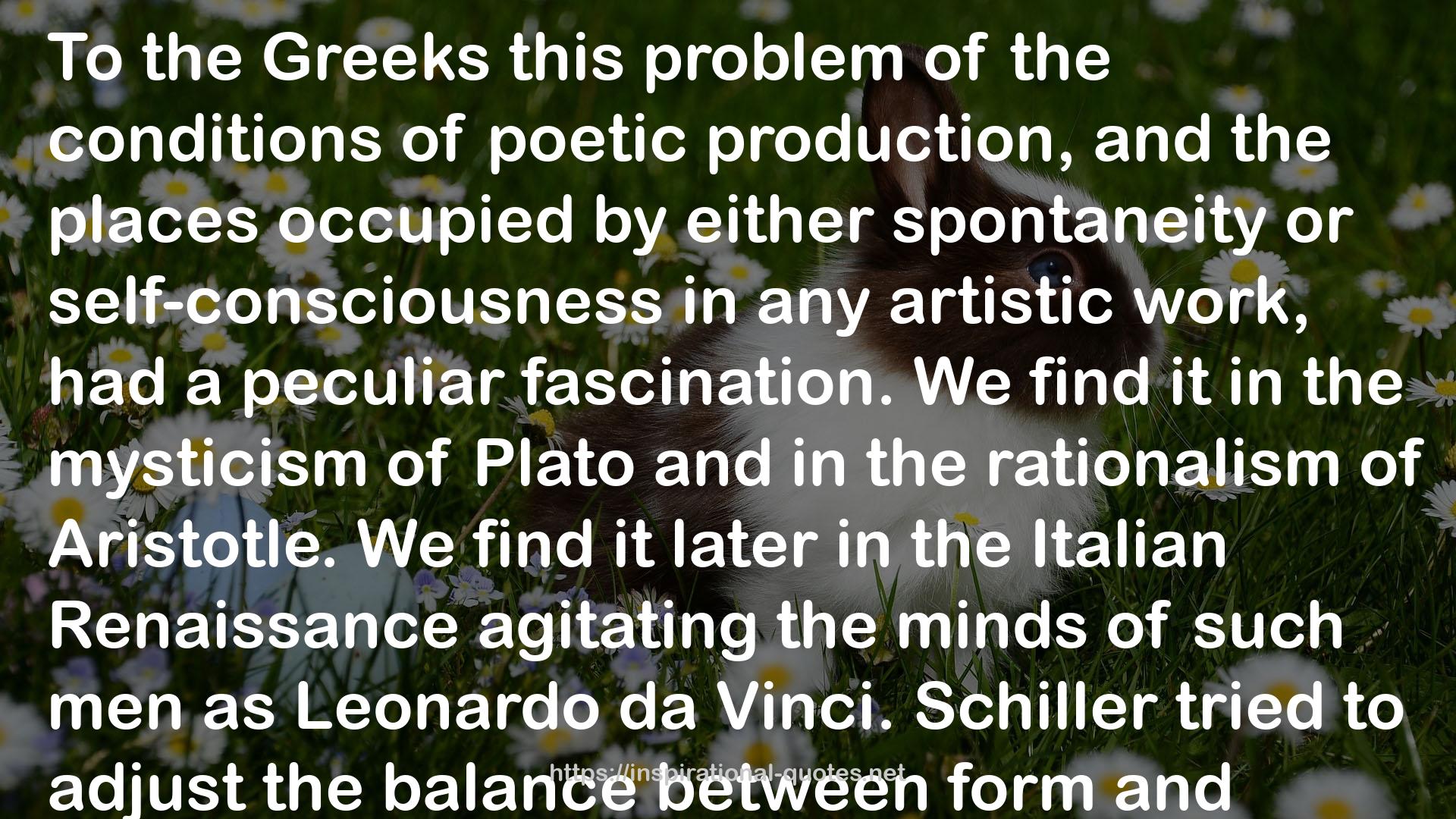" To the Greeks this problem of the conditions of poetic production, and the places occupied by either spontaneity or self-consciousness in any artistic work, had a peculiar fascination. We find it in the mysticism of Plato and in the rationalism of Aristotle. We find it later in the Italian Renaissance agitating the minds of such men as Leonardo da Vinci. Schiller tried to adjust the balance between form and feeling, and Goethe to estimate the position of self-consciousness in art. Wordsworth’s definition of poetry as ‘emotion remembered in tranquillity’ may be taken as an analysis of one of the stages through which all imaginative work has to pass; and in Keats’s longing to be ‘able to compose without this fever’ (I quote from one of his letters), his desire to substitute for poetic ardour ‘a more thoughtful and quiet power,’ we may discern the most important moment in the evolution of that artistic life. The question made an early and strange appearance in your literature too; and I need not remind you how deeply the young poets of the French romantic movement were excited and stirred by Edgar Allan Poe’s analysis of the workings of his own imagination in the creating of that supreme imaginative work which we know by the name of THE RAVEN. "
― Oscar Wilde , The English Renaissance of Art
